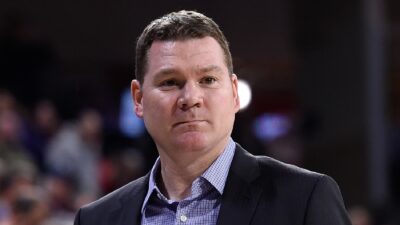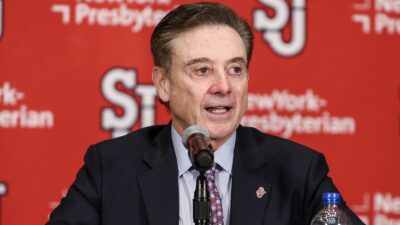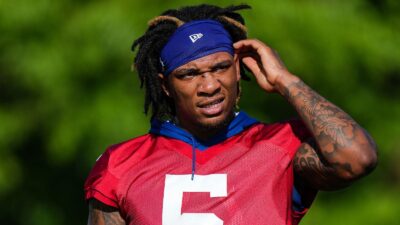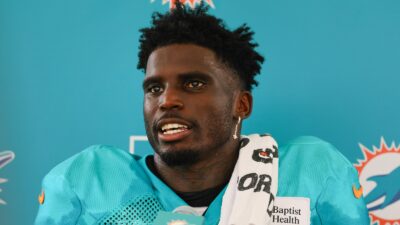
Roy Williams is not buying into the new theories on load management that have permeated the NBA.
Williams’ North Carolina Tar Heels beat Notre Dame 76-65 in their season opener on Wednesday night. Junior forward Garrison Brooks played 39 minutes while freshman Cole Anthony played 37 of 40 possible minutes. Anthony was the big scorer in the game, throwing in 34 points with 11 rebounds to lead the Tar Heels.
Williams was asked after the game about the minutes Anthony played and dismissed the issue as “load management crap in the NBA.”
UNC coach Roy Williams being asked about Cole Anthony playing almost all the minutes in early season games:
“I don’t believe in this load management crap in the NBA. You pay me $25 million a year and my load is going to be pretty light.”
— Jared Weiss (@JaredWeissNBA) November 7, 2019
At the same time, Williams did recognize that it’s a long season and he doesn’t want to burn out Anthony or any of his other players.
Roy said this in the context that his guys — namely Cole — can handle the heavy minutes workload, but also acknowledges it is a long season and he is cognizant about not overworking them. https://t.co/IQTAJf4Suu
— Jared Weiss (@JaredWeissNBA) November 7, 2019
There are a few aspects to take into account in this matter, such as the differences between the NBA and college games, before jumping on Williams for “riding his players too hard” and “misusing them.”
Load management was developed in the NBA because the league could sometimes have a difficult schedule, where teams play multiple games per week, sometimes on consecutive nights that also involve traveling. Gregg Popovich began giving some of his older players days off to let them heal and recover better between games in which they played. Then LeBron James and others started doing the same thing, and the concept was given even more validation after Kawhi Leonard led the Raptors to the championship while managing his load.
Keep in mind that the NBA schedule is twice as long and much more grueling/demanding for NBA players than college players. College teams usually only play two games per week. Additionally, NBA games are 48 minutes long, compared to 40 for college. When NBA players take games off for load management, it’s to get down to a schedule similar to what a college player plays.
There is another argument though, and that is that the concept of load management is the product of long-term thinking. Players want to extend their careers, and teams want to protect their long-term investments. If that means taking games off here or there in the interest of longevity, the plan can benefit both parties. In college, top players usually only stay at a school for a season or two. A coach therefore has little long-term incentive to manage the player’s load. In fact, they’re incentivized to maximize the time they do have a player by using them a lot.
While college players should be able to easily handle 35 or so minutes per game playing twice a week, coaches should not be burning them out. Williams seems to recognize that.












